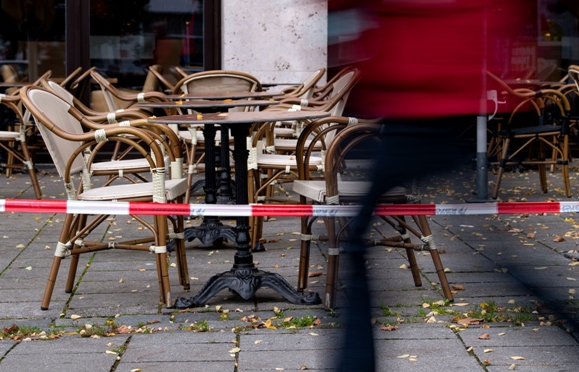Germany enters month-long shutdown in bid to bring down virus numbers
By Linda Zahlhaas and Rachel More
BERLIN – Public life in Germany has been brought to a near-standstill as part of a four-week shutdown in Europe’s largest economy in a bid to stem a surge in coronavirus infections.
From Monday (2), restaurants and bars will be shuttered along with cinemas, theatres, museums and other cultural and recreational facilities.
Some people in Munich and Berlin took the opportunity to enjoy a final drink or meal out over the weekend.
Nonetheless, things began winding down in many areas ahead of the Monday closures.
In Hamburg, the northern port city’s Reeperbahn red-light district, known for its crowds and party atmosphere, was relatively empty over the weekend amid an increased police presence.
For the next four weeks initially, domestic tourism has essentially been banned in Germany.
Across most of the country’s 16 states, outdoor gatherings are limited to members of no more than two households, with a maximum of 10 people. In some regions, this also applies to gatherings in the home.
Fans will also be banned from top-level football matches in the Bundesliga, amateur sport will not take place, and gyms, pools, cosmetic studios, massage parlours and tattoo studios are closed.
Unlike the first round of sweeping restrictions earlier this year, schools and kindergartens will remain open, along with most shops and hair salons.
Restaurants can serve takeaway food during the November shutdown.
Germany is a world leader in terms of its intensive-care-unit capacity and so far has weathered the pandemic without any bottlenecks in hospitals.
But Chancellor Angela Merkel has warned that if the case numbers continue to rise at their current rate, the nation’s health-care system could be overwhelmed within weeks.
The measures have also been billed as an attempt to halt an exponential spread of the virus ahead of the Christmas season.
The Robert Koch Institute, Germany’s infectious disease body, reported 12,097 new cases within 24 hours on Monday, bringing the total number of cases since the start of the pandemic to 545,027.
The death toll also grew by 49, to reach a total of 10,530.
Monday’s figures were lower than the record-breaking numbers seen towards the end of last week, although this could be skewed due to the fact that fewer people are tested over the weekend.
Merkel was scheduled to give a press conference on the situation later Monday, and she was scheduled to meet the premiers of the German states in two weeks’ time to assess the shutdown’s impact.
The renewed closures have led to concerns over whether businesses already struggling from the first shutdown can survive.
On top of existing financial aid, the government has pledged another tranche of up to 10 billion euros (11.6 billion dollars) in funding to cover the majority of businesses’ lost revenue during the month of November.
-dpa


